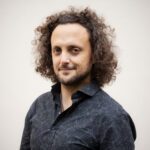Lien vers Pubmed [PMID] – 18246066
Nat. Genet. 2008 Mar;40(3):340-5
The considerable range of observed phenotypic variation in human populations may reflect, in part, distinctive processes of natural selection and adaptation to variable environmental conditions. Although recent genome-wide studies have identified candidate regions under selection, it is not yet clear how natural selection has shaped population differentiation. Here, we have analyzed the degree of population differentiation at 2.8 million Phase II HapMap single-nucleotide polymorphisms. We find that negative selection has globally reduced population differentiation at amino acid-altering mutations, particularly in disease-related genes. Conversely, positive selection has ensured the regional adaptation of human populations by increasing population differentiation in gene regions, primarily at nonsynonymous and 5′-UTR variants. Our analyses identify a fraction of loci that have contributed, and probably still contribute, to the morphological and disease-related phenotypic diversity of current human populations.


